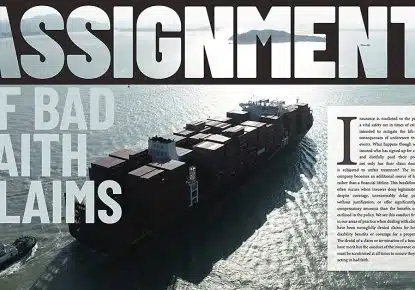
Top advice for out-of-province auto insurance in the winter travel season
Anyone who has planned a vacation knows that even the best-laid plans can go awry. For Canadian snowbirds on the road over the holiday season, an out-of-province motor vehicle accident may have disrupted your plans before you even reached your destination.
Winter driving conditions create unique challenges for travellers due to sudden storms and icy roads, which reduce visibility and motor vehicle traction. In fact, the winter months see the highest volume of collisions that result in insurance claims according to a new report from Allstate Canada.
What does Ontario auto insurance cover?
No matter where you are in Canada, all drivers are required to have some basic car insurance, though the standards vary between the provinces and territories.
In Ontario, the provincial government outlines a standard policy which all private insurers must align with. There are four main requirements to meet minimum coverage in Ontario, which include:
-
Statutory accident benefits – Allows the injured party to access benefits such as income replacement benefits as well as medical, rehabilitation and attendant care benefits.
-
Third party liability – Protects the driver if they are considered responsible for damages or injury to another person or their property.
-
Uninsured automobile coverage – Protects those who are injured by an uninsured motorist or by a hit-and-run driver.
-
Direct compensation – Property damage (DC-PD) – Covers the cost of repairs to a damaged vehicle, as well as the loss of use of the vehicle, if another party is at-fault for the accident.
The minimum requirement for insurance providers in Ontario states that coverage must include motor vehicle accidents across Canada and in the United States. However, there are certain forms of auto insurance that do not extend beyond Ontario and may complicate the claims process.
For example, uninsured automobile coverage is not legally required in all provinces, including Alberta and British Columbia, but drivers can purchase a policy extension to include this protection as part of their plan. It is also important to note that many jurisdictions in the United States have lower minimum coverage limits. If a driver insured in Ontario is involved in an accident with an American driver, the driver may not have enough insurance coverage to compensate them for damages.
Going to trial
A personal injury claim for an accident that occurs outside of Ontario may be heard in the province or state in which it occurred. However, it is possible to hear a personal injury claim in Ontario by presenting factors that link the accident to your home province.
To determine where a case will be heard, a court may consider the following factors:
-
If the defendant lives in or is a resident of the province
-
If the defendant conducts business in that province
-
If the wrongful act was committed in that province
In addition, a claimant can establish a connection by demonstrating the accumulation of damages in their home province, including medical costs, therapy costs or other claim-associated costs.
Understand limitation periods
The law in the jurisdiction where the accident occurs determines the limitation period, which is the time frame in which an action must be commenced. In Ontario, the limitation period is two years from the date of the accident.
Limitation periods in other jurisdictions may be shorter, and if a plaintiff misses the limitation period, they may not be able to issue a claim. The best way to avoid this is to connect with an experienced personal injury lawyer who can help you with your case.
For help with making a claim for damages or accident benefits as a result of a motor vehicle collision, contact our personal injury lawyers at Singer Katz for a free consultation.








